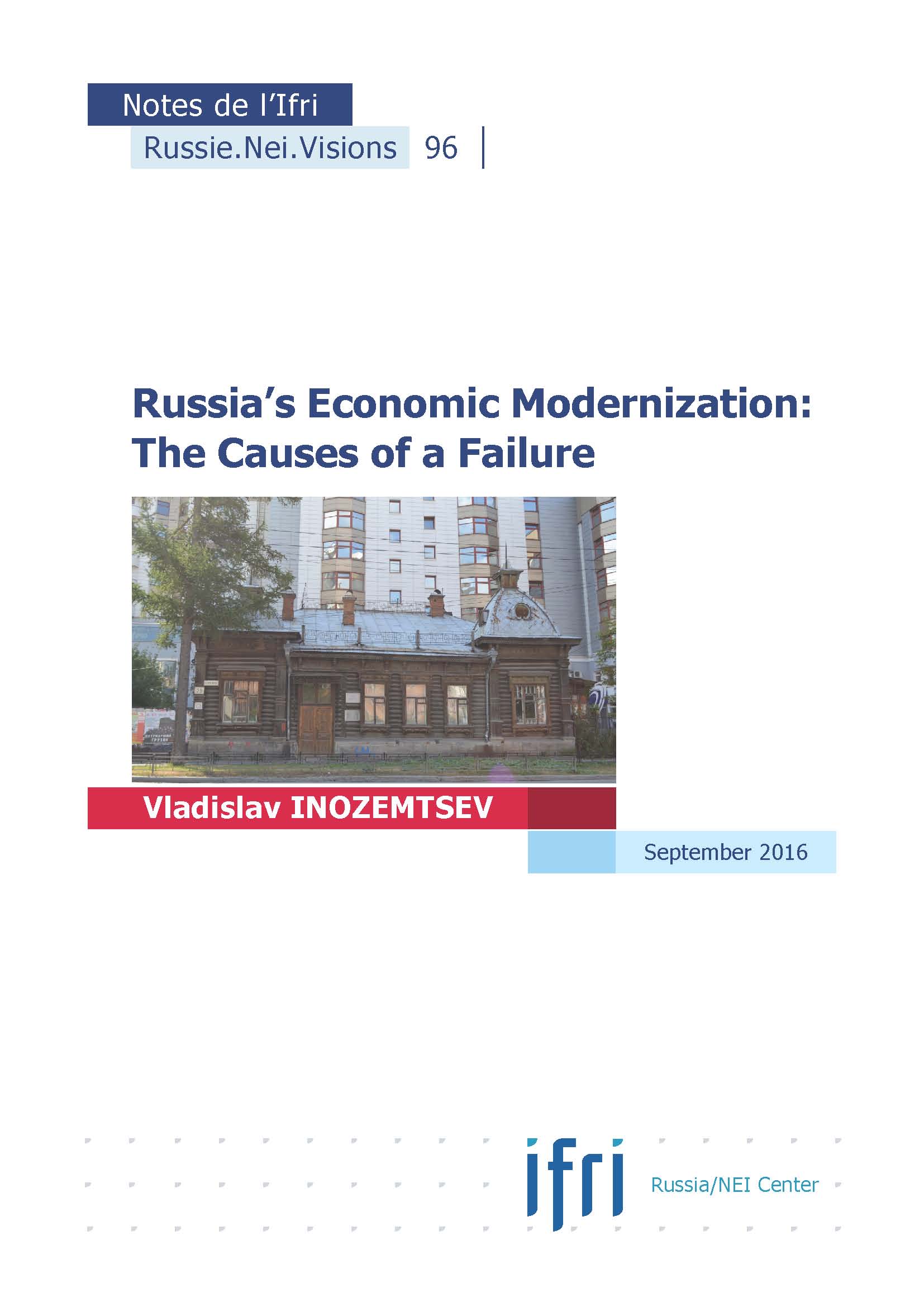Russia's Economic Modernization: The Causes of a Failure

In this short study of attempts that have been made in recent years to modernize the Russian economy, the author explains why they have all ended in failure. Unlike most experts, he focuses on politics and ideology.

He stresses that the idea of modernization runs counter to the historical vision that is now propagated by the Russian leadership, to the system of governance that it has chosen and to Russia’s current path of isolation from the West. In his view, such political choices have rendered modernization of the Russian economy unfeasible. The author also points to other problems: the effects of privatisation, which have made investment in new industrial facilities unprofitable, the declining quality of business leaders who are chosen for their political loyalty and the lack of independent big businesses that could insist on reforms being carried out.
Vladislav Inozemtsev is a Russian economist, Doctor of economic science and the founder and director of the Centre for the Study of Post-industrial Society (founded 1996). Between 2002 and 2012, he was Editor-in-Chief of the journals Svobodnaia Mysl and Russia in Global Affairs, as well as of the Russian version of Le Monde diplomatique. A professor at Moscow State University (MGU) and the Higher School of Economics, he is a non-resident Senior Fellow at the Institute for Human Sciences in Vienna and at the Center for Strategic and International Studies in Washington.
Download the full analysis
This page contains only a summary of our work. If you would like to have access to all the information from our research on the subject, you can download the full version in PDF format.
Russia's Economic Modernization: The Causes of a Failure
Related centers and programs
Discover our other research centers and programsFind out more
Discover all our analysesThe Caspian Sea as an Emerging Energy Hub : Potentials and Limitations
This report analyzes the prospects of the Caspian Sea region — and its key actors except for Russia and Iran — becoming an important energy hub serving the needs of the European Union (EU).
The European Union's Strategic Test in Georgia
The political crisis brewing in Georgia is of an existential nature for the country. What is at stake is Georgia's future as a democratic and sovereign European nation (EU).
Commanders of Putin's Long War: Purged, Reshuffled and Disgruntled
The trend of reshuffling the Russian top military command in the course of a fast-evolving and far from successful war has progressed unevenly both across the Armed Forces’ structures and in time. The rationale for and timing of the abrupt cadre decisions made by Commander-in-Chief Putin often defy logical explanation, and the rare official clarifications are no more informative than the usual information blackout.
Russian Military Manpower After Two and a Half Years of War in Ukraine
In addition to a military victory in Ukraine, the Russian leadership is planning to build up sizable troop formations for a possible conflict with NATO in the Baltic region and the Kola Peninsula. In particular, current plans aim for the military manpower to grow by about 350,000, reaching a total of 1.5 million soldiers and commanders. In the context of the current conflict in Ukraine, this cannot be accomplished without a new wave of mass mobilization.









